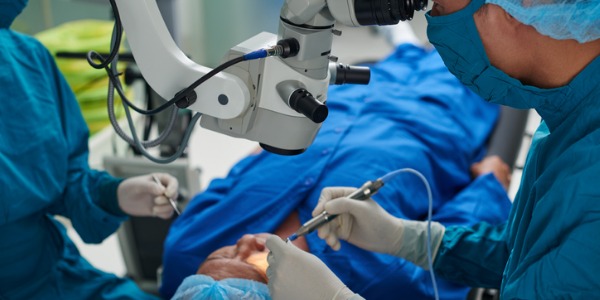What is an Ophthalmologist?
An ophthalmologist is a medical and surgical specialist that deals specifically with the structure, function, diseases, and treatment of the eye. The discipline of ophthalmology comes from the Greek word "opthalmos" meaning "eye," and "logia" meaning "the study of". Due to the complexities and the importance of the eye as a special sense that provides vision, the discipline of ophthalmology is dedicated solely to this organ.
What does an Ophthalmologist do?

The study of ophthalmology dates back as far as 800 BCE, when the Indian surgeon Sushruta noted down various eye diseases he encountered among his patients. The field was carried over to the pre-Hippocratic era, medieval times, and the 17th and 18th century, with each period giving its own significant contribution regarding fluid anatomy, muscle function, and surgical treatment. Today, modern ophthalmologists have the privilege of accessing the vast stores of knowledge and surgical techniques built and developed by their predecessors. However, they are also expected to contribute to this special branch of medicine through their own research and study.
Ophthalmologists are primarily concerned with correcting imperfections and treating conditions of the eye that are known to cause diminished or loss of vision. They assess the condition of the patient's eye, diagnose any abnormalities found, intervene to preserve the sense of sight, and evaluate whether the condition has improved. They determine and prescribe the grade for patients who need glasses, and they may even open up their own private business that sells corrective lenses.
An ophthalmologist will also do eye surgeries including cataract extraction, lens replacement, cornea reshaping, transplants, retinal detachment repair, and glaucoma treatment. Most of these procedures are often performed with the aid of lasers and computerized surgical tools, but the majority are still done by hand.
Ophthalmologists can also operate on animals, as the eye's anatomy and physiology have few differences among closely related species. However, a veterinary eye doctor is often considered a different specialist with separate licensing and regulation. Generally, ophthalmologists are assumed to be completely dedicated to the study and treatment of the human eye, but some may find veterinary ophthalmology practice to be a more attractive field.
What is the workplace of an Ophthalmologist like?
Once licensed and regulated, ophthalmologists can open their own private practice anywhere and start receiving patients. There is also the option of being employed as a specialist in a tertiary hospital. Other career-related paths will be available too, such as public health employee, academic researcher, military doctor, sports doctor, community doctor, medical lawyer, medical school professor, and many more.
They can also participate in humanitarian benefits and missions all over the world where eye problems are prevalent but medical treatment is scarce. As an example, Dr. Sanduk Ruit is one such philanthropist who specializes in giving free cataract surgery in developing countries. His work has even taken him deep into North Korea, where he performed cataract extraction and lens replacement on impoverished North Koreans as documented by National Geographic. As an ophthalmologist, there are no workplace borders which limit the practice of the profession.
Ophthalmologists are also known as:
Comprehensive Ophthalmologist
General Ophthalmologist
Pediatric Ophthalmologist
Retinal Surgeon
Retina Specialist
Vitreoretinal Surgeon
Vitreo Retinal Surgeon
Eye Doctor